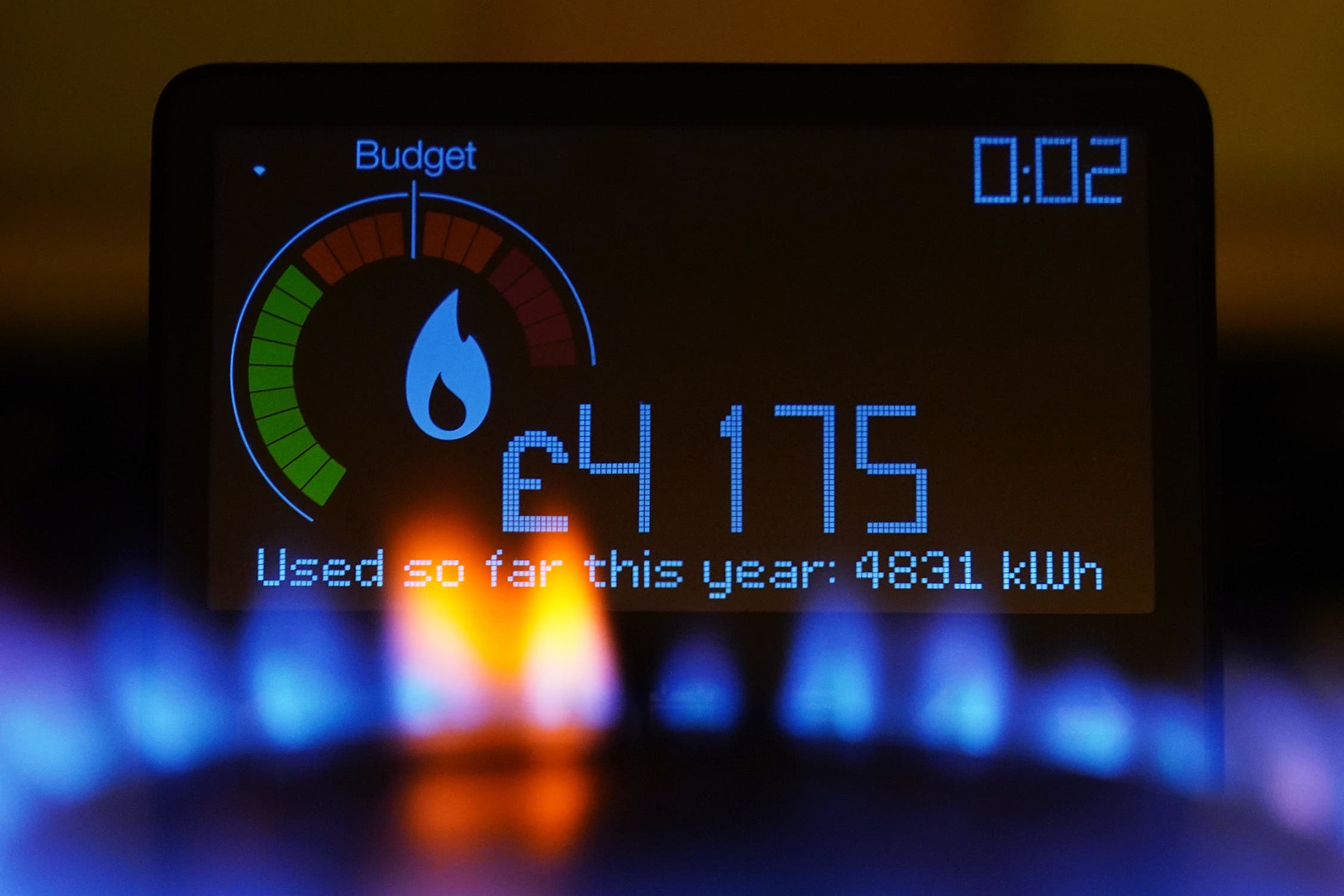Government not advising people to reduce energy use, says minister
But climate minister Graham Stuart was unwilling to completely rule out the need for rationing.

Your support helps us to tell the story
From reproductive rights to climate change to Big Tech, The Independent is on the ground when the story is developing. Whether it's investigating the financials of Elon Musk's pro-Trump PAC or producing our latest documentary, 'The A Word', which shines a light on the American women fighting for reproductive rights, we know how important it is to parse out the facts from the messaging.
At such a critical moment in US history, we need reporters on the ground. Your donation allows us to keep sending journalists to speak to both sides of the story.
The Independent is trusted by Americans across the entire political spectrum. And unlike many other quality news outlets, we choose not to lock Americans out of our reporting and analysis with paywalls. We believe quality journalism should be available to everyone, paid for by those who can afford it.
Your support makes all the difference.The Government is not telling people to reduce overall energy consumption, a minister has said, but he refused to rule out rationing.
Climate minister Graham Stuart said rather than looking at reducing overall use, the Government is supporting the energy regulator to devise solutions to provide incentives for businesses and consumers to potentially cut peak-time energy demand if needed.
During a series of broadcast interviews on Friday, he said the UK’s energy security is “pretty strong”, and he noted National Grid said blackouts this winter are an “unlikely” scenario.
Mr Stuart also said he does not recognise a report in The Times which claimed Business Secretary Jacob Rees-Mogg signed off on a £15 million public information campaign about using less energy this winter only for the plan to be ruled out by Prime Minister Liz Truss.
“I don’t recognise that. We are in an iterative process of policy development and ideas, and we come to a conclusion,” Mr Stuart told Sky News.
It is not our intention to have it (outages) and we are doing everything possible to mean that it should not happen
“The idea there was some highly developed campaign… passionately devoted to and Number 10 nixed it, I don’t recognise that.”
On Thursday, the National Grid Electricity System Operator said households and businesses might face planned three-hour outages to ensure the grid does not collapse. But it described such a scenario as “unlikely”.
But Mr Stuart did not rule out the need for energy rationing this winter when pressed on LBC.
Ms Truss was asked in August during her Tory leadership campaign whether she could rule out energy rationing, and she replied: “I do rule that out.”
When asked if he would make the same commitment today, Mr Stuart said: “The National Grid, we get to do it independently, and they do their assessment. They’ve said it’s very unlikely.”
Asked again, he said “it’s impossible to…”, before being interrupted and pressed over whether the Government’s position is a U-turn on Ms Truss’s pledge during her leadership campaign.
Mr Stuart said: “We are not planning to have that. It is not our intention to have it and we are doing everything possible to mean that it should not happen.”
Pressed over the apparent change in rhetoric on the issue, Mr Stuart said: “Events move on, as you well know. We’ve seen all sorts of threats to our energy security.”
But the climate minister insisted that due to the nature of the energy system the Government’s message is not to reduce overall consumption.
“We are not sending that out as a message,” he told BBC Breakfast, while acknowledging “all of us have bills, of course, and the bills have gone up”.
He told Sky news: “The last thing you want to do is tell someone, you know, switch things off for the national need when it makes no difference to the national security position.
“In other countries it’s more about reducing overall energy use. For us, it’s not so much about that, it’s about reducing the demand at time of peak,” he added, when speaking to LBC.
“We’ve worked with Ofgem and National Grid and others to make sure we’ve got the maximum flex we can, in the very unlikely scenario there was a supply shortage.
“For us it’s all about the peak. It’s about meeting these peaks rather than the kind of overall usage in terms of security of supply. And likewise using the smart meter technology that’s been installed in many homes to allow people to, again voluntarily, reduce their usage and get rewarded for doing so.
“Technically, a general campaign about reducing energy would probably make no difference to our energy security. So, that would be a good reason not to do it.
“We’re also hesitant to tell people what they should do when we’re not a nanny-state Government. What we are prepared to do is talk to the big energy users and talk to consumers with smart technology about rewarding them for reducing energy at the peak times.”